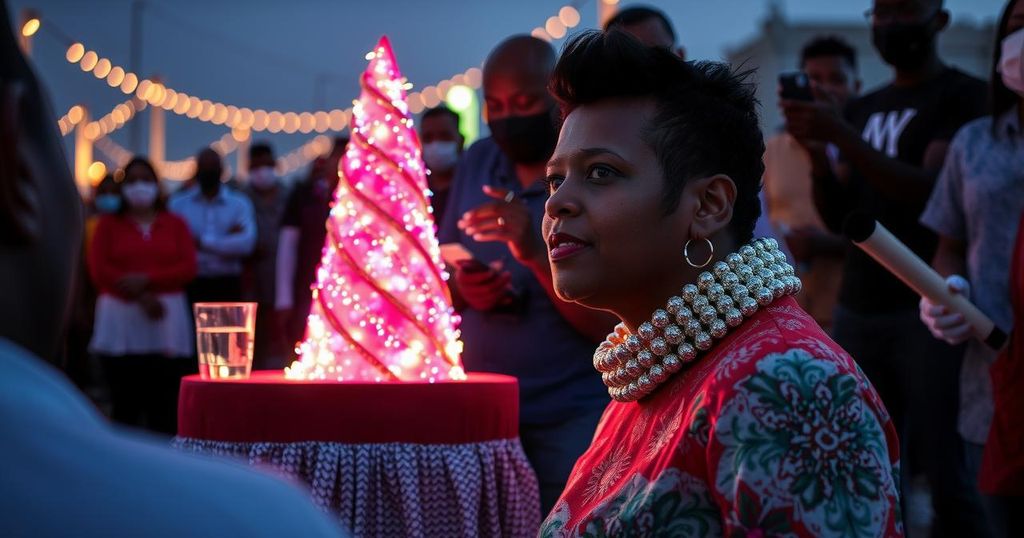Tensions Escalate in Maputo Amid Disputed Election Results

Mozambique’s capital, Maputo, is experiencing unrest following the controversial confirmation of election results favoring the ruling Frelimo party. Protests have erupted, leading to violence, looting, and significant social disruptions. The opposition claims electoral fraud has fueled tensions, prompting large protests in the city and other northern provinces. The impact on public services and local businesses is profound, creating a tense atmosphere during what would typically be a celebratory Christmas Eve.
On a tense Christmas Eve in Maputo, Mozambique’s capital, violent clashes erupted between protesters and law enforcement, following the controversial confirmation of election results favoring the ruling Frelimo party. Armored police units patrolled the mainly deserted streets where small groups of demonstrators engaged in acts of vandalism, setting makeshift roadblocks ablaze on the evening prior, resulting in thick smoke blanketing the city. Protests intensified after the Supreme Court validated the victory of presidential candidate Daniel Chapo, while opposition leader Venancio Mondlane accused Frelimo of election fraud, raising concerns about escalated violence between party loyalists.
The atmosphere in the city was grim, with closures of shops, banks, and public services making basic necessities scarce. The Maputo Central Hospital reported critical operational conditions, affected by employee absences, and treated numerous injuries from the unrest, including 40 from gunfire. Barricades and burning tires obstructed the main roadways leading to the city and its airport, rendering them largely inaccessible to regular traffic. As traditional Christmas Eve festivities diminished under the weight of disorder, residents remained indoors, many opting out of celebrating.
The unrest was not confined to Maputo, as similar violence spilled into several northern provinces where opposition support is significant, resulting in over 100 fatalities linked to post-election unrest. In response to the electoral grievances, Mondlane urged citizens to continue the struggle for “electoral truth,” while internally, Chapo expressed a commitment to unity in his victory remarks, proposing dialogue with all stakeholders, including his opponents. Despite facing serious claims of electoral irregularities, Frelimo secured a substantial parliamentary majority, causing further tensions within the political landscape.
The political climate in Mozambique has been significantly affected by recent elections held on October 9, wherein the ruling Frelimo party’s candidate Daniel Chapo was proclaimed victorious. This conclusion was met with skepticism and accusations of electoral fraud, particularly from the exiled opposition leader Venancio Mondlane. The aftermath of these elections has led to widespread unrest in multiple regions, highlighting the deep political divisions within the country. The social and political implications of these events continue to unfold, with criticisms aimed at both the judicial system and the electoral process at large.
In conclusion, the aftermath of the disputed election in Mozambique has led to significant civil unrest characterized by protests, violence, and political tension. The confirmation of the ruling party’s victory has intensified divisions among the populace, prompting calls for electoral accountability and unity. As both sides navigate this turbulent period, the implications for Mozambique’s social stability and governance remain uncertain.
Original Source: www.barrons.com







